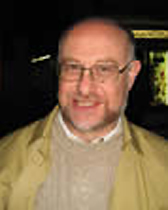Kenneth Seeskin
Philip M. and Ethel Klutznick Professor Emeritus of Jewish Civilization

- k-seeskin@northwestern.edu
- (847) 491-2560
- Kresge Hall, 3-435
Kenneth Seeskin is the Philip M. and Ethel Klutznick Professor Emeritus of Jewish Civilization. After receiving his PhD from Yale in 1972, he joined the faculty of Northwestern and has remained here ever since. He served for nearly 20 years as Chair of the Philosophy Department and with the start of the 2010-11 academic year, will serve as Chair of Religious Studies. He has won several teaching awards since coming to Northwestern and served as the Charles Deering McCormick Professor of Teaching Excellence from 1995-1998.
Seeskin is best known for his interpretation and defense of the rationalist tradition in Jewish Philosophy, including such figures as Maimonides, Spinoza, and Cohen. His most recent books include the Cambridge Companion to Maimonides (CUP, 2005), Maimonides on the Origin of the World (CUP, 2005), Autonomy in Jewish Philosophy (CUP, 2001), and Searching for a Distant God: The Legacy of Maimonides (OUP, 2000). The latter was awarded the Koret Jewish Book Award in 2001. The Cambridge Guide to Jewish History, Religion, and Culture, co-edited with Judith Baskin, is scheduled to appear in 2010.
His published articles dealing with religious themes are wide-ranging including studies on the Book of Job, the meaning of the Holocaust, negative theology, the concept of holiness, and recent studies on the role of reason in Jewish philosophy, the role of miracles in Jewish philosophy, and the Greek background to Jewish Philosophy. He is currently working on a book on messianism that will take up issues pertaining to evil, rationality, and the philosophy of history.
Selected Works
Books
Jewish Messianic Thoughts in an Age of Despair (Cambridge University Press, 2012).
Co-Editor, Cambridge Comprehensive Guide to Jewish History, Culture, and Religion (Cambridge University Press, 2010).
Editor, Cambridge Companion to Maimonides (Cambridge University Press, 2005).
Maimonides on the Origin of the World (Cambridge University Press, 2005) Choice Award for Outstanding Book in the Humanities, 2006.
Autonomy in Jewish Philosophy (Cambridge: Cambridge University Press, 2001).
Searching for a Distant God: The Legacy of Maimonides (New York: Oxford University Press, 2000).
Jewish Philosophy in a Secular Age (Albany: SUNY Press, 1990).
Articles
"Job and the Problem of Evil," Philosophy and Literature 11 (1987): 226-41. Reprinted in The Jewish Philosophy Reader, edited by Frank, Leaman, and Manekin (London and New York: Routledge, 2000), pp. 66-73.
"What Philosophy Can and Cannot Say about Evil," in Echoes from the Holocaust, edited by Rosenberg and Myers (Philadelphia: Temple University Press, 1988), pp. 91-104. Reprinted in A Holocaust Reader, edited by Michael Morgan (New York: Oxford University Press, 2000).
"Coming to Terms with Failure: A Philosophical Dilemma," in Writing and the Holocaust, edited by Berel Lang (New York: Holmes and Meier, 1988), pp. 110-21. Reprinted in A Holocaust Reader , edited by Michael Morgan (New York: Oxford University Press, 2000).
"Jewish Philosophy in the 1980's," Modern Judaism 11 (1991), pp. 157-72.
"How to Read Religion of Reason," Introduction to the Second English edition of Hermann Cohen's Religion of Reason out of the Sources of Judaism (New York: Oxford University Press, 1995), pp. 21-42.
"Holiness as a Moral Ideal," Journal of Jewish Thought and Philosophy 5 (1996): 191-203.
"Sanctity and Silence: The Religious Significance of Maimonides' Negative Theology," American Catholic Philosophical Quarterly 76 (2002): 7-24.
"The God of the Philosophers," Jewish Studies Quarterly 13 (2006) No. 3: 205-214.
"Ethics, Authority, and Autonomy," The Cambridge Companion to Modern Jewish Philosophy (New York: Cambridge University Press, 2007), 192-208.
"The Greek Background to Jewish Philosophy," forthcoming in Cambridge History of Jewish Philosophy.
"Reason as a Paradigm in Jewish in Thought," forthcoming in Cambridge History of Jewish Philosophy: The Modern Era.
